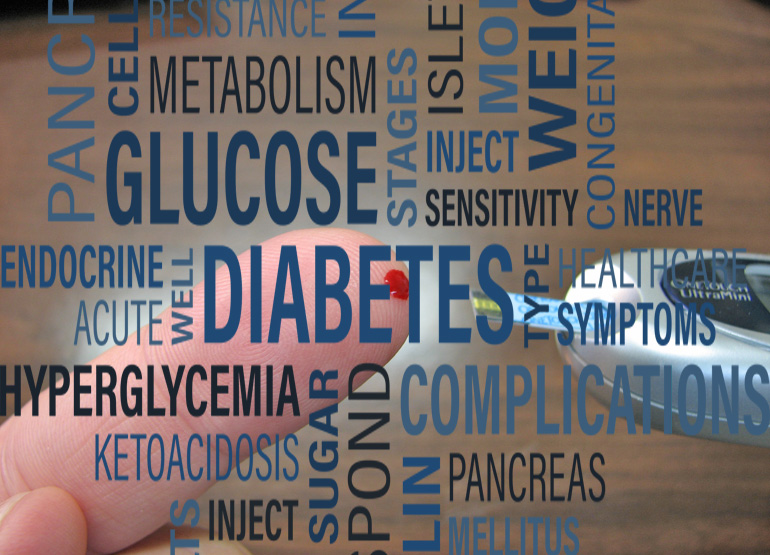Health Pages
Diabetes
Diabetes
Diabetes is a chronic disease that affects the body's ability to use glucose (sugar) for fuel. It is characterized by elevated blood glucose levels due to insufficient supply or action of insulin.
Insulin, a substance produced by the pancreas, enables your body to use sugar for energy. When a person has diabetes, the pancreas is either not producing enough insulin, or the body is unable to use what it produces effectively. When insulin is not available, the sugar from the food you eat stays in your blood-stream, causing blood sugar levels to rise.
Having diabetes doubles the risk of cardiovascular disease (CVD) for men and triples the risk for women.
Diabetes is a serious problem. With help and education, people with diabetes can live full and satisfying lives. If they succeed, all society will benefit.
YOU MAY HAVE A HIGHER RISK OF DEVELOPING TYPE 2 DIABETES IF:
 You are overweight.
You are overweight.
 You are inactive.
You are inactive.
 You have hypertension.
You have hypertension.
 You have an immediate family member parent or sibling with diabetes.
You have an immediate family member parent or sibling with diabetes.
 You are of Aboriginal,"Hispanic or African descent.
You are of Aboriginal,"Hispanic or African descent.
The cause of diabetes is not yet known. Four out of every ten people with diabetes will develop complications such as: cardiovascular, eye and kidney disease. By managing the diabetes disease carefully, a person can substantially reduce the risk of complications. Keep blood sugar levels as near to normal as possible to prevent complications from developing. Find out more about diabetes...
Did You Know?
"If you have type 1 diabetes, you’re INSULIN DEPENDENT! There is no pill or alternative treatment for type 1 diabetes."



